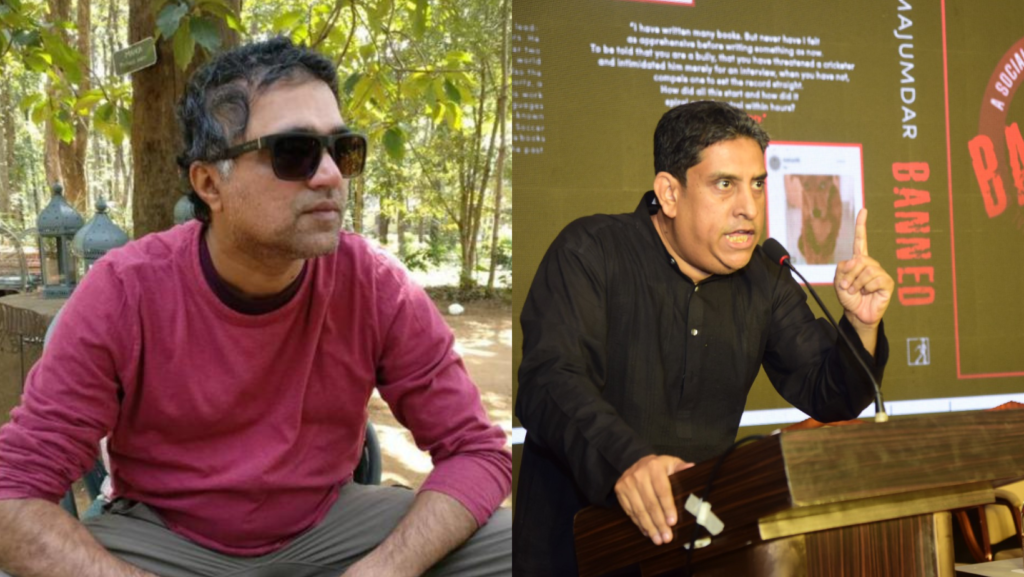
Sukhwant Basra
I distinctly remember the day Boria Majumdar was banned by the BCCI. Not for any other reason but for the fact that I was having my evening tipple when Twitter unrolled my opiate for the day, and this popped up. I laughed so hard that my wife came out of the bedroom to admonish my encroachment on our three-year-old’s peaceful sleep. I wasn’t amused at Boria’s discomfiture. Rather, it was that innocuous text message of his, which was painted as threatening, invasive, and coercive, which set me off.
When the child was asleep, my wife asked me just what the merriment was about. I said that it was just an instinctive response to the ridiculousness of the situation. And it was her take that, by this standard, had anyone read my conversations with some of India’s top sportspeople during my stint as longest-serving Sports Editor of a national daily, I would have been lynched.
I was one of India’s leading tennis writers for a long while. Tennis had three main stars at the time: Leander Paes, Mahesh Bhupathi, and Sania Mirza. There was no love lost between them and me, as I would mince no words when I wrote. With Paes and Bhupathi, there evolved an uneasy relationship. They figured I was someone who wasn’t going to back off and that few stories were beyond my ken. However, given that they were active athletes at the highest echelons of their sport, they weren’t always available to speak. At such times, with a deadline looming, I would message them inducements to speak to me. These ‘cajoling’ messages were many a time not really polite. They were never so insecure as to make them public.
.@theRohitBansal, Group Head of corporate communications at RIL, comes in support of @BoriaMajumdar‘s recently launched book, #Banned: A Social Media Trial.
“He has set an example for anyone who is in a crisis. He showed how not to give up!”@SimonSchusterIN #TruthRevealed pic.twitter.com/wgtNUFANX6
— RevSportz (@RevSportz) April 28, 2024
During the 2015 World Cup in Australia, one of our reporters, Jasvinder Sidhu, was subjected to an expletive-laden rant by a current India cricketer. While Sidhu wasn’t too bothered and wanted to treat it as just another day at the job of cricket reporting, I saw it as an affront to the organisation. As such, I began to build a campaign to get the cricketer to apologise. With India in the middle of a World Cup campaign, this was an onerous task as there was limited support from the journalistic community as well as within my own house.
Eventually, the then president of cricket’s apex body, called me to settle the issue. I told him that we had done our homework and a verbal assault may be interpreted as a criminal offence under Australian law, and my reporter would soon be filing a police complaint in that country unless the said cricketer did the decent thing. Within hours, the apex body had issued a press release condemning the act of the player. Now, can this be interpreted as a form of intimidation? On social media, my ancestors and I would have been abused to perfidy, and painted anti-national, as I potentially impacted the fragile ego of one of our star players!
There is a lot of grey in the world of journalism. The meatiest of stories seldom see the light of public scrutiny. The unsaid far outpaces the publicised. In the wake of my experience, I have always found the ban on Boria a hilarious incongruity. What irritated me the most about his predicament was the fact that the majority of sports journalism’s stalwarts did not speak out to save one of their own. But then, I think many were perhaps relieved that one of their main competitors in cricket reporting had been neutralised.
It is also instructive that Boria has created a sports-reporting brand out of nothing over the last two years. Let’s hope he goes further with his quest for excellence.
Not all relationships in cricket are defined by self-interest. That was brought home to me when I met Ashwin on a flight and, later, when Gavaskar wrote for Sachin@50
✍️@BoriaMajumdar#TruthRevealedhttps://t.co/5TGxSymPlL
— RevSportz (@RevSportz) April 28, 2024
The writer was Hindustan Times National Sports Editor for six years. Now, he pretends to be a tennis coach.



